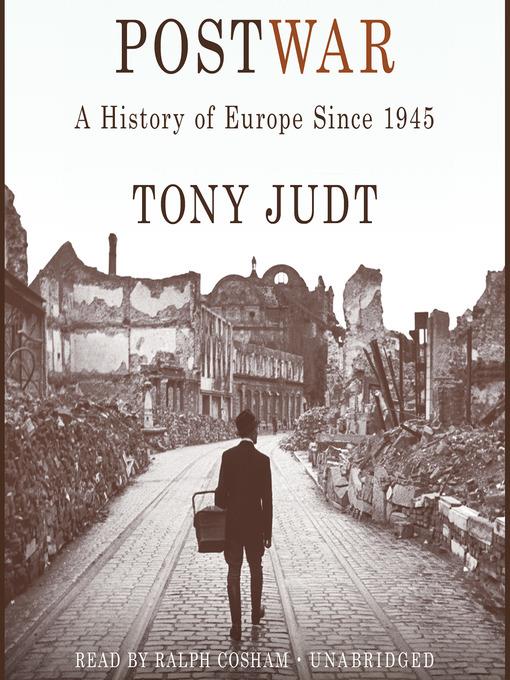
Postwar
A History of Europe Since 1945
کتاب های مرتبط
- اطلاعات
- نقد و بررسی
- دیدگاه کاربران
نقد و بررسی

Understanding the complicated and extensive details of the post-WWII political mop-up in Europe requires a 43-hour investment. One could never imagine the endless issues of where to return refugees and how to try war criminals, implement the Marshall Plan, and establish 5,000 miles of borders. Few listeners can hope to absorb all the complex maneuverings, but this audiobook is still worthwhile. The task becomes more palatable with the voice of narrator Ralph Cosham. His smooth facility with the spoken word and linguistic nuance keeps one moving forward. He also rises to the author's verbal complexity, in English and in delivery of smatterings of foreign words. J.A.H. (c) AudioFile 2011, Portland, Maine

Starred review from August 29, 2005
This is the best history we have of Europe in the postwar period and not likely to be surpassed for many years. Judt, director of New York University's Remarque Institute, is an academic historian of repute and, more recently, a keen observer of European affairs whose powerfully written articles have appeared in the New York Times
, the New York Review of Books
and elsewhere. Here he combines deep knowledge with a sharply honed style and an eye for the expressive detail.
Postwar
is a hefty volume, and there are places where the details might overwhelm some readers. But the reward is always there: after pages on cabinet shuffles in some small country, or endless diplomatic negotiations concerning the fate of Germany or moves toward the European Union, the reader is snapped back to attention by insightful analysis and excellent writing. Judt shows that the dire human and economic costs of WWII shadowed Europe for a very long time afterward. Europeans and Americans recall the economic miracle, but it didn't really transform people's lives until the late 1950s, when a new, more individualized, consumer-oriented society began to appear in the West. But Postwar
is not just a history of Western Europe. One of its great virtues is that it fully integrates the history of Eastern and Western Europe, and covers the small countries as well as the large and powerful ones.
Judt is judicious, even a bit uncritical, in his appraisal of American involvement in Europe in the early postwar years, and he's scathing about Western intellectuals' accommodation to communism. His book focuses on cultural and intellectual life rather than the social experiences of factory workers or peasants, but it would probably be impossible to encompass all of it in one volume. Overall, this is history writing at its very best. Agent, Andrew Wylie.

























دیدگاه کاربران